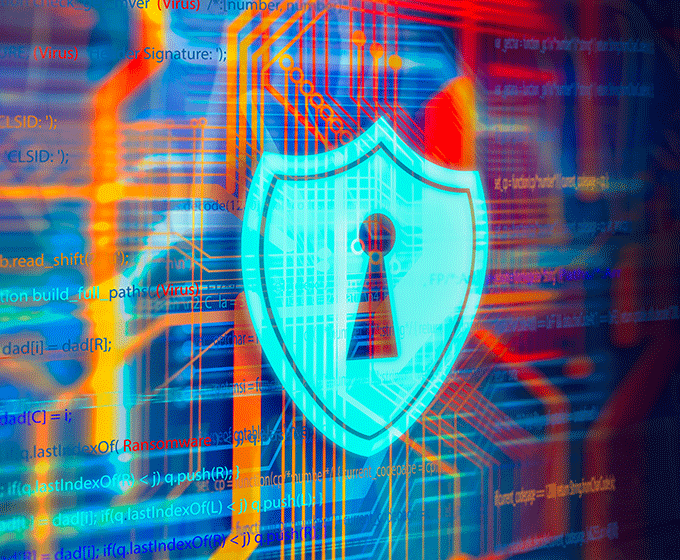
MAY 17, 2021 — News of the Colonial Pipeline shutting down operations due to a ransomware attack highlights the urgency of the threat and the need to take action to defend against it. This software attack led to the decision to temporarily close the pipeline from Texas that is a main source of fuel for the Eastern U.S. The UTSA Institute for Economic Development is sharing steps that can be taken to protect small businesses and organizations from similar cyber threats.
“We recognize and appreciate the fact that small businesses comprise the backbone of our nation’s economy,” said Alejandro Mayorkas, U.S. secretary of homeland security, speaking to a virtual audience of approximately 1,500 small and medium-sized business owners at a May 5 U.S. Chamber of Commerce virtual event.
“It is for that very reason that individuals who pose a threat to our nation—who employ cyber tools and particularly ransomware as the vehicle for realizing that threat—target small businesses as extensively as they do,” Mayorkas explained.
For small businesses, there are cybersecurity resources and best practices available.
Victor Malloy, Texas Cybersecurity Compliance Program project manager at the UTSA IED, leads a cybersecurity training program for small businesses.
Malloy has more than 20 years of experience as a leader in information technology programs with the U.S. Air Force, Department of Defense, and the financial services and defense industries, including leading daily cyber operations within the Air Force Cyberspace Operations Center. He provides expert technical guidance on defending against cyber threats.
“All of us must take actions to protect ourselves from organized attacks like the ransomware incident that has significantly impacted the energy sector,” Malloy said.
Malloy recommends following the cybersecurity ACES mnemonic:
• Awareness: Know that when a cybersecurity incident happens to someone else, it affects everyone, even those who don’t use electronic devices. In the case of this incident, the supply of energy resources is causing increases in the cost for all consumers.
• Current Updates: Make sure to use the most updated versions of web browsers, email applications, and hardware updates for mobile phones, laptops and electronic devices. Manufacturers have a responsibility to design security fixes to products purchased for use at home or in business.
• Education: Learn about proper hygiene in daily digital habits. Use multifactor authentication to access mobile phones, laptop and information systems. Keep backup copies of all critical files, documents and records for personal information. Follow organizations’ information security policies and procedures.
• Stay Vigilant: If there is something suspicious in a text message, email or phone call, report it immediately to a law enforcement, security official or an organization’s leadership. Malloy offered an overview on how to mitigate the risk from ransomware attacks on organizations.
“The bottom line is to back up offline, use multi-factor authentication for all users, and validate email links and email attachments,” he said.
Cybersecurity is also a concern for local, state and national elections. The IED is currently working with the State of Texas’ Department of Information Resources, offering cybersecurity and election security training and resources for Texas election officials.
For more information on small business cybersecurity training, call (210) 458-2458 or email cgc@utsa.edu.
UTSA Today is produced by University Communications and Marketing, the official news source of The University of Texas at San Antonio. Send your feedback to news@utsa.edu. Keep up-to-date on UTSA news by visiting UTSA Today. Connect with UTSA online at Facebook, Twitter, Youtube and Instagram.
Move In To COLFA is strongly recommended for new students in COLFA. It gives you the chance to learn about the Student Success Center, campus resources and meet new friends!
Academic Classroom: Lecture Hall (MH 2.01.10,) McKinney Humanities BldgWe invite you to join us for Birds Up! Downtown, an exciting welcome back event designed to connect students with the different departments at the Downtown Campus. Students will have the opportunity to learn about some of the departments on campus, gain access to different resources, and collect some giveaways!
Bill Miller PlazaJoin us for an intimate evening of cocktails, conversation, and culinary inspiration with Pati Jinich, Emmy-nominated chef and James Beard Award-winning author. Enjoy light bites and signature drinks in the warm, modern setting of Mezquite as Pati connects with guests over her passion for Mexican cuisine and storytelling.
Mezquite Restaurant in Pullman Market, 221 Newell Ave., San Antonio 78215From inspired courses to thoughtful pairings and a rich sense of community, the Ven a Comer Signature Dinner is a night of shared meals, shared stories, and unforgettable flavor.
Stable Hall (Pear Brewery), 307 Pearl Pkwy, San Antonio 78215Come and celebrate this year's homecoming at the Downtown Campus with food, games, giveaways, music, and more. We look forward to seeing your Roadrunner Spirit!
Bill Miller PlazaThe University of Texas at San Antonio is dedicated to the advancement of knowledge through research and discovery, teaching and learning, community engagement and public service. As an institution of access and excellence, UTSA embraces multicultural traditions and serves as a center for intellectual and creative resources as well as a catalyst for socioeconomic development and the commercialization of intellectual property - for Texas, the nation and the world.
To be a premier public research university, providing access to educational excellence and preparing citizen leaders for the global environment.
We encourage an environment of dialogue and discovery, where integrity, excellence, respect, collaboration and innovation are fostered.